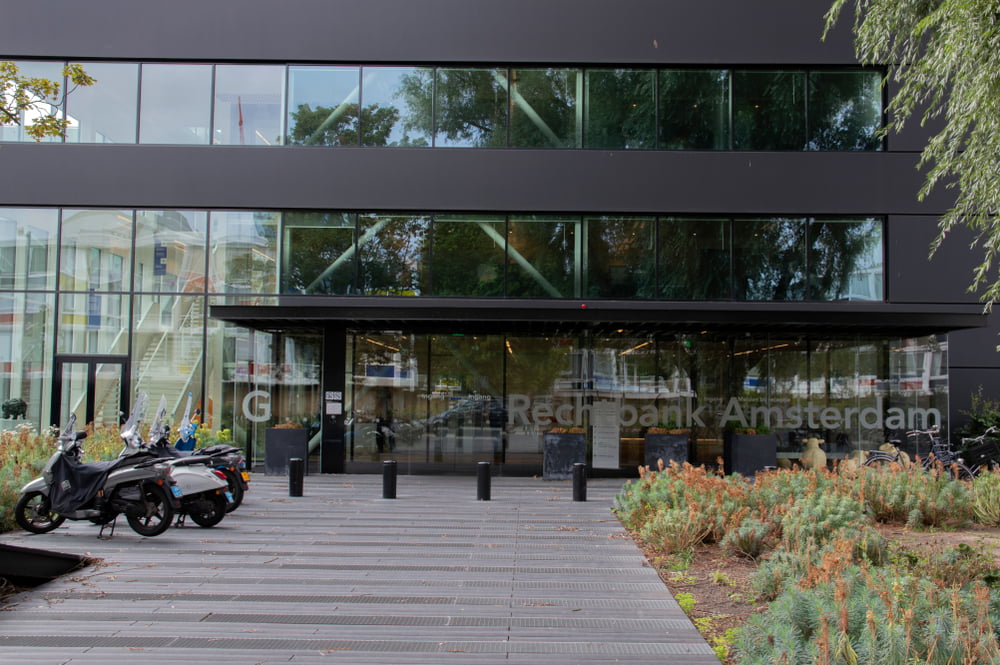The Amsterdam court has a groundbreaking one pronunciation about the rights of platform workers when it comes to management via algorithm. The court has ordered Uber and Ola Cabs to be more transparent towards their drivers in the data they store as the basis for decisions on deactivation ('dismissal'), wage reduction and the distribution of journeys. According to the magazine Passenger Transport Magazine, Uber and Ola were both tasked to provide more clarity about the operation of the management systems (Uber's Real Time ID system and Ola's Guardian) they use. The court categorically rejected one Uber claim: the plaintiffs did not abuse the European GDPR legislation in this case.
At its heart, this case - which started in December - was about algorithms 'managing' and 'directing' drivers without human supervision, in a way that circumvents their digital rights as EU citizens and rights as workers. James Farrar, of the Worker Info Exchange union and Yaseen Aslam of the App & Delivery Couriers Union (ADCU), went to the Amsterdam court because both the European centers for Uber and Ola Cabs are located in the Netherlands.
Incidentally, Farrar and Aslam won a historic victory over Uber before the UK Supreme Court last month in the appeal that Uber had brought against an earlier decision by the UK labor court that Uber drivers are indeed 'workers' rather than self-employed workers. .
The case in Amsterdam - of a number of British drivers and a Portuguese driver - was divided into three elements: the case of the Uber drivers for more transparency and one for incorrect deactivation and that of Ola drivers against Ola Cabs for more transparency. In both cases, the complainants wanted more access to their personal data. In its rulings on those points, the court ruled that Uber would provide two British drivers accused of fraud with access to the data that led to their exclusion from the Uber network. The court also demanded that drivers have access to anonymous individual overviews of their journeys and their quality scores, rather than giving them an overall average of those performance scores.
lack of transparency
On one point, the court dismissed the drivers' claim: Uber could demonstrate that it had not terminated their Uber activation without reasonable human intervention. The court did not award compensation or ask Uber to provide more comprehensive information on how prices are calculated or how comments (electronic or manual) were added to the driver profiles, because the drivers did not specifically request that missing data. This is not expected to be the last case about the lack of transparency at Uber.
“The court confirmed that Uber's ride-sharing system is not an automatic decision-making system and we have provided drivers with the information they are entitled to. The court also confirmed that Uber's internal processes had sufficient human intervention. ”
To which Farrar, who had filed the case before the Worker Info Exchange union, said, “This is an extremely important first step. We will have to do a lot more. ” Access to data is important, Farrar said, because as platforms' contractual agreements with drivers become more scrutinized, they tend to move towards automated systems and thus become more opaque. Greater transparency helps drivers to challenge unfair decisions against them, but also provides more insight into the average net hourly wages. ”
In the case against Ola Cabs, the court ruled that the reservation system used a fully automatic system to deduct amounts from a driver's income. The court stated that Ola must give drivers access to anonymous performance statements, their personal data that was used to determine their 'fraud probability' and their income profile. After all, both influenced the allocation of journeys.
Another part of Thursday's ruling concerns the monitoring systems for drivers and the role they can play in managing employees. Last year, after complaints about illegal drivers' driving and transgressive sexual behavior, platforms started to monitor drivers more in order to improve the safety of users. Uber's Real-Time ID Check surveillance system asks drivers to take regular photos of themselves for verification by software, for example, or a human reviewer. The system has been in the works for years, but was only launched in the UK in April last year and described in an Uber statement as proof that 'safety is our number one priority.' Ola's Guardian surveillance system was first introduced in 2018 as a pilot program in selected Indian cities and looks for noticeable 'route deviations.'
Amsterdam lawyer Anton Ekker, who specializes in data and GDPR cases, represented the drivers and stated that, according to him, this is the first time that a court has concluded that drivers had to deal with automated decisions regarding Article 22 of the European law on data protection (GDPR). This gives drivers the right to request human intervention, express their personal vision and object to a decision taken.
Both unions are still considering whether to appeal against the decision of the Amsterdam court. Their objection to the Amsterdam judgment is that the burden of proof against the platforms is placed too much on the employees and that self-employed workers at Uber do not have the opportunity to defend themselves against a possible deactivation. In the meantime, the unions have urged platform workers to join them pending further actions under Article 22 GDPR. “This ruling is a huge win for our members who have been unfairly treated by Uber and Ola using electronic monitoring systems,” said Yaseen Aslam of the ADCU in a statement.



